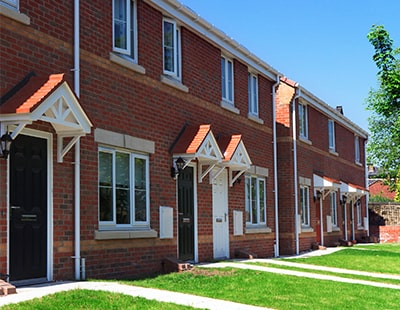Making housing affordable for local workers
In the UK we are rightly proud of the NHS. The pandemic has emphasised the importance not only of those working directly in the health service but of many other key workers who we needed to continue working through lockdown while the rest of us could stay at home.
What it has also done has highlighted many of those who would not usually be classed as key workers – the retail workers, factory and warehouse workers, bin collectors, long distance HGV drivers and construction workers (to name a few) - who have kept our supply chains moving and have kept the country and economy able to operate on some level.
We know that we have a housing affordability crisis which affects those on lower incomes, many of whom are key workers (in the broader sense of the term). They may end up in accommodation which is too small for their needs and so far out of town that they face long commutes to work or they may get caught in rented accommodation with limited security because they cannot build up a deposit or get a suitable mortgage.
I am not the first to argue for this, but there is a clear case to encourage the provision of more housing which is dedicated to those living and working locally and those who may otherwise struggle to afford to buy at open market value, not just in the socially rented sphere but in private ownership also.
Of course there has to be a trade-off. Developers are (usually) not charities – they need to secure solid profit margins to guard against risk and secure inward investment and thus have an incentive to continue building.
They will be guided by local planning policy to deliver local authority requirements and there is a risk that by legislating to require more homes to be sold below market value, mainstream developers could struggle to balance their financial appraisals and pull out of (or reduce their activity in) the market.
How green is your house?
Sustainability is of course not a new subject, but this agenda has been rudely interrupted by the pandemic.
The Environment Bill, which is making its way through Parliament, has stalled at committee stage but it is understood that a report on this is due by June 25. When passed, the Bill will enhance the obligations on developers to protect and create biodiversity on new developments and all developments which result in loss of any habitat will need to provide a minimum of 10% biodiversity net gain.
Equally, the Department for Transport consulted last year on its proposal to require electric vehicle charging points in new residential and commercial buildings (with transitional provisions for existing buildings).
There has been no further progress since the consultation closed, which for the time being may be a relief to developers already concerned about their profit margins. No doubt this will be reinvigorated in due course.
However, there is some way to go – as with affordable housing, developers will be led by government guidelines and planning requirements when it comes to incorporating sustainability into design and the lag of the initiatives above may mean further delays to the delivery of housing which is more sustainable.
Earlier this year, many local authorities expressed concerns about the government’s consultation on the Future Homes Standard.
In this consultation the government proposed that new homes would be expected to have 75-80% lower carbon emissions than the current stock. Yet, at the same time, the government proposed to restrict local planning authorities from setting higher standards than the Future Homes Standard, which it was suggested could impair local authorities from achieving their net zero carbon goals by going beyond the standard set by government.
In the absence of government regulation requiring better energy performance, is there an incentive for developers to achieve net zero carbon?
Social impact investment – no longer niche?
So in a year when an economic downturn is expected but the twin crises of affordability and sustainability will only become more pronounced, why should investors consider putting funds into social impact ventures?
Once considered a niche or ancillary element to investment strategy, now many mainstream funders are acknowledging the potential for ‘social capital’ and the value this can create. This is in part driven by investors, often individuals investing through their pensions or ISAs who may specifically look for social impact or ethical investment rather than purely looking at financial yields.
Insofar as affordable housing is concerned, in what is expected to be a struggling residential market for a period of time, could there be a short-term incentive to offer below market value housing which might sell more quickly and thus help cashflow, while preserving values on open market value stock?
As an investor, at what point does a swifter, safer, but lower return become more valuable than a later, riskier, higher return?
Maybe the legacy of 2020 will not be the pandemic, but rather the year in which social impact investment went mainstream.
Please note that I am not an investment advisor or valuation expert and my comments in this article are not intended as advice. All views are my own.
*Katy Klingopulos is a senior associate in the commercial real estate and real estate development teams at BDB Pitmans


















Join the conversation
Be the first to comment (please use the comment box below)
Please login to comment